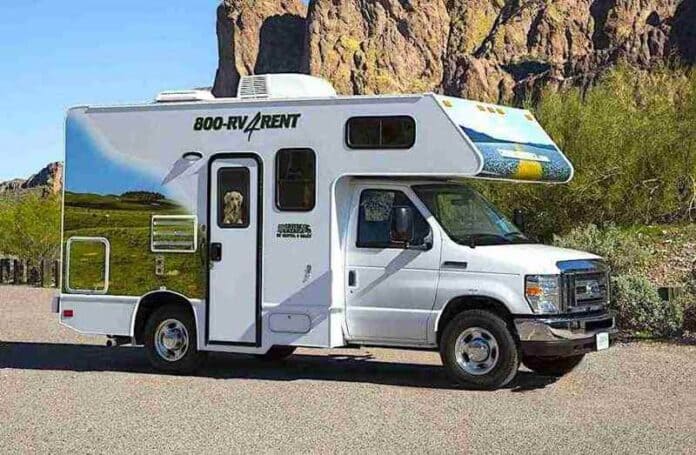Welcome, adventurers! If you’re teetering on the edge of a long term RV rental journey, this comprehensive guide is your handy companion. We will sail together through the sea of rules, regulations, and best practices to ensure a smooth and enjoyable ride.
Overview of Long Term RV Rentals
Renting an RV (Recreational Vehicle) for a longer period isn’t just about hitting the road. It’s about exploring freedom, building bonds, and making memories. Yet, a long-term RV rental comes with a set of responsibilities. These mainly revolve around understanding and agreeing to certain terms and conditions set by the rental company. This guide will help you navigate these waters.
The Basics of Renting an RV
Understanding Different Types of RVs
RVs come in various shapes and sizes, each offering unique features and advantages. The major types include Class A Motorhomes, Class B Motorhomes, Class C Motorhomes, Travel Trailers, Fifth Wheel Trailers, Pop-Up Campers, and Truck Campers. Your choice depends on factors like your travel plans, budget, and personal preferences.
“Choosing the right RV can feel like solving a puzzle.”
Determining the Right Size and Type of RV for Your Needs
Choosing the right RV can feel like solving a puzzle. You need to consider the number of people traveling, storage space needed, amenities desired, and ease of driving. For instance, a couple on a romantic getaway might prefer a Class B RV for its compact size, while a family vacation may call for a Class A motorhome that offers ample living space.
Rule #1: Know Your Rental Agreement
Understanding Your Rental Contract
Your rental agreement is your roadmap to a hassle-free journey. It outlines the terms, conditions, and responsibilities of both parties. Make sure to read it carefully. Pay close attention to details about rental duration, mileage limitations, additional costs, pet policies, and cancellation policies.
Discussing Insurance Requirements
Insurance is your safeguard against unforeseen circumstances. Most rental companies offer their own coverage, but it’s essential to understand what it includes. Ask about liability, collision, and comprehensive insurance. You may also need supplemental insurance for personal belongings or roadside assistance.
Rule #2: Respect Weight Limits
Explanation of RV Weight Limits
Every RV has a Gross Vehicle Weight Rating (GVWR). This is the maximum weight your RV can safely handle, including passengers, cargo, and even the water in your tanks. Overloading your RV is not only illegal but also dangerous.
Consequences of Overloading an RV
Exceeding your RV’s weight limit can lead to poor handling, increased fuel consumption, compromised braking, and tire failure. It can also void your warranty and insurance coverage. So, before you start packing, make sure you know your RV’s weight limit and pack accordingly.
Rule #3: Maintenance and Repairs
Responsibility for Routine Maintenance
Just like any vehicle, an RV requires regular maintenance. Before hitting the road, check the condition of the tires, lights, brakes, and batteries. Ensure all systems are functioning properly. Typically, basic maintenance falls on the renter’s shoulders during the rental period.
Dealing with Breakdowns and Repairs
Despite best efforts, breakdowns can occur. In such cases, immediately notify the rental company for guidance. Some companies offer 24/7 roadside assistance while others may require you to handle minor repairs and reimburse you later. Knowing your responsibilities in advance can save you precious time and stress.
Rule #4: Campsite Etiquette
Understanding Campground Rules
Campgrounds often have rules about noise levels, pet behavior, waste disposal, and fires. Some even have specific parking guidelines. Familiarize yourself with these rules to ensure a harmonious stay.
Respecting Fellow Campers
Remember, campsites are shared spaces. Maintain quiet hours, keep your area clean, and respect the privacy of others. A little consideration can go a long way in making the camping experience enjoyable for everyone.
Rule #5: Safety Measures
Ensuring Road Safety While Driving an RV
Driving an RV requires more care than driving a car. Keep a safe distance from other vehicles, avoid speeding, and take wide turns. Also, remember to secure all items inside the RV before moving. Loose objects can cause accidents while on the move.
Safety Precautions at Your Campsite
At the campsite, level your RV properly before setting up. Check for potential fire hazards and keep a fire extinguisher handy. Always secure your RV when leaving it unattended. Safety should always be your top priority.
Recap of Rules and Regulations for Renting an RV

In conclusion, long term RV rentals require understanding different types of RVs, knowing your rental agreement, respecting weight limits, performing regular maintenance, following campsite etiquette, and ensuring safety. Remember, preparation is key to a smooth and enjoyable journey.
Final Thoughts on Long Term RV Rental
Long term RV rentals are more than a vacation; they’re a lifestyle choice. They promise adventure, freedom, and the joy of discovering new places at your own pace. With the right knowledge and a respectful attitude towards rules and regulations, your RV journey can be an unforgettable experience. Happy travels!
Thank you for reading our blog on long term RV rental. We hope that the information provided has helped you understand the rules and regulations associated with renting an RV for an extended period of time.
To recap, here are the key points to remember:
- Understand the different types of RVs available for rent and choose one that suits your needs.
- Familiarize yourself with the rental agreement and be aware of any restrictions or requirements.
- Respect weight limits and ensure you do not exceed the maximum capacity of the RV.
- Take responsibility for routine maintenance, such as checking tires, lights, brakes, and batteries before each trip.
- In case of breakdowns or repairs, notify the rental company immediately and follow their instructions.
- Learn and follow the rules and regulations of the campgrounds you visit, including noise levels, pet behavior, waste disposal, and parking guidelines.
- Be considerate of other campers by maintaining quiet hours, keeping your area clean, and respecting their privacy.
- Practice safe driving habits while operating the RV, such as maintaining a safe distance from other vehicles, avoiding speeding, and securing loose objects inside the RV.
- Take safety precautions at your campsite, such as leveling the RV properly, checking for fire hazards, and keeping a fire extinguisher nearby.
- Always prioritize safety and be prepared for any emergencies that may arise.
By following these rules and regulations, you can ensure a smooth and enjoyable long term RV rental experience. Remember, preparation is key, and with the right knowledge and attitude, your RV journey can be an unforgettable adventure.
We wish you happy travels and many wonderful memories on your long term RV rental journey! When it comes to RV rental insurance and parking regulations, it is important to know what you need to be prepared for. Before you decide to go on a camping trip with an RV, it is wise to do some research so you can make sure you are familiar with the specific rules and regulations of the park or campsite.
Fortunately, there is plenty of information online to help you find a guide to RV camping that outlines the rules and provides tips on how to get the most out of your experience. Knowing the parking regulations in advance will give you peace of mind and allow you to enjoy your camping trip without any stress or worry.
Make sure to review your rental insurance policy as well to ensure proper coverage during your stay in the RV. It’s important to understand what your insurance policy covers and whether there are any additional fees or requirements for long term rentals. Some rental companies may require you to purchase a separate insurance policy specifically for RV rentals, while others may offer coverage as part of the rental agreement.
When it comes to parking regulations, each campground or park may have its own specific rules. Some may have designated RV parking areas with hookups for water and electricity, while others may have restrictions on where you can park your RV. It’s important to check the rules and regulations of the specific campground or park you plan to visit to ensure you are in compliance.
Additionally, it’s a good idea to familiarize yourself with general RV parking etiquette. This includes not parking too close to other RVs, respecting designated parking spots, and being mindful of noise levels. Being a considerate camper will ensure a positive experience for yourself and other campers around you.
In conclusion, understanding RV rental insurance and parking regulations is crucial for a smooth and stress-free camping trip. Take the time to research and familiarize yourself with the rules and regulations of the specific campground or park you plan to visit and review your rental insurance policy. By being prepared and knowledgeable, you can have an enjoyable and worry-free long term RV rental experience.
Renting an RV can be a great way to enjoy a family vacation without breaking the bank. Consider looking for RV rentals in Tampa, FL, a great jumping-off point to explore diverse attractions. It is important to remember to get RV insurance to make sure you are properly covered.
Most insurance policies cover RV rentals and can protect your vehicle from damages and liability. Make sure to read your policy to understand what types of coverage it provides. Doing research ahead of time will ensure that you have a safe and enjoyable trip in your RV.
FAQs
Can you live in an RV all year?
Yes, you can live in an RV all year. Obviously, if you are staying in a colder climate, you will have to take steps to winter-proof the RV.
How old do you have to be to rent an RV?
To rent an RV, you generally need to be at least 25 years old. Some rental companies may allow individuals between the ages of 21 and 24 to rent an RV, but may require additional fees or have specific restrictions. It is recommended that you check with the specific RV rental company for their age requirements and policies.
What is the most rented type of RV?
The most rented type of RV is the Class C motorhome. The Forest River Sunseeker’s class motorhome is part of many large rental fleets. Because Class C RVs are self-contained, there are no issues with whether you have the appropriate tow vehicle for a trailer. Also, larger class A motorhomes may require special driver’s licenses. So, the class C motorhome is generally more universally suitable for most renters.













